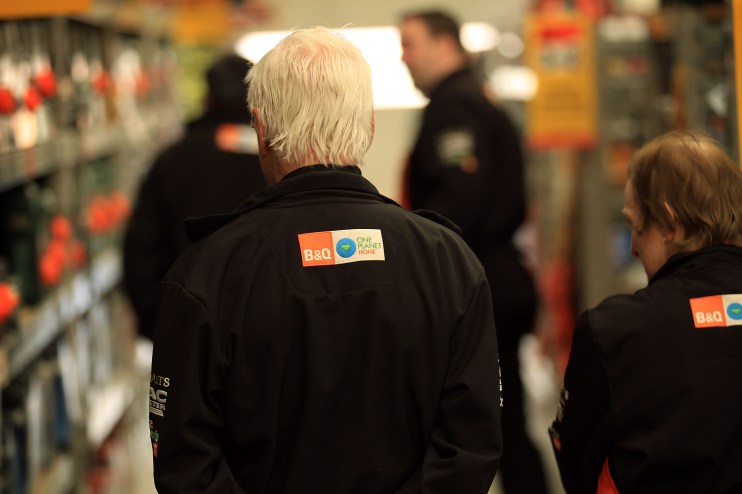B&Q owner Kingfisher’s new CEO blasts ‘disappointing’ like-for-like sales slump

B&Q owner Kingfisher saw like-for-like sales sink 3.7 per cent over its third quarter, as its new chief executive admitted he has “much to do” to improve the business.
Sales sank 3.1 per cent to £2.96bn over the quarter to the end of October, with the UK seeing a one per cent decline in like for like sales to rake in £1.29bn.
Read more: Major UK high street chains close 6,000 stores in 2019
B&Q sales sank 3.5 per cent year on year to £820m, slightly offset by an eight per cent rise in Screwfix sales to £477m.
Kingfisher’s French units – Castorama and Brico Depot – contributed to a six per cent drop in sales in the country, which sank to £1bn in revenue.
The DIY giant also saw heavy declines across its international businesses, which collectively fell 4.9 per cent thanks largely to a 15 per cent plunge in Russian sales and Iberia’s eight per cent drop.
Kingfisher’s share price fell seven per cent in early trading to 193.9p.
Kingfisher blamed the decline in sales on the introduction of new product ranges, ongoing operational challenges in France and “softer market conditions” in its main European markets.
CEO Thierry Garnier, who replaced Veronique Laury earlier this year, called the trading “disappointing”.
“I am proud to be leading a group with strong assets, excellent market positions, differentiated business models and strong brands,” he said.
“However, it is clear that there is much to do to improve our performance. Kingfisher’s trading during Q3 was disappointing. My early assessment is that we have not found the right balance between getting the benefits of group scale and staying close to local markets.”
Read more: Kingfisher suffers shareholder rebellion over executive pay
He added: “We are suffering from organisational complexity, and we are trying to do too much at once with multiple large-scale initiatives running in parallel. Altogether, this has brought disruption to sales and has distracted the business from focusing on customers. In addition, we faced softer market conditions in our main markets during the period.”
Garnier’s predecessor, Laury, left the FTSE 100 business halfway through a major five-year turnaround plan amid a slump in profits and a swathe of store closures as Kingfisher pulled its Screwfix brand out of Germany.
Poisoned chalice
Richard Hunter, head of markets at Interactive Investor, said Garnier “could be forgiven for thinking that he has been handed a poisoned chalice”.
He added that Kingfisher’s transformation plan has not been effective and the firm’s vast complexity leaves it vulnerable to nimbler competitors, leading to plunging sales.
“Unfortunately the near-term outlook from the company is equally bleak and the new CEO will have the combined challenges of both assimilating Kingfisher’s culture for himself as well as making the necessary improvements to the company’s fortunes.
While Screwfix remained a “ray of hope” for Kingfisher, its contribution of 16 per cent of overall sales mean it cannot rescue the firm, the analyst warned.
Read more: Global stocks fall lower as Trump threatens more tariffs
Kingfisher’s share price has plummeted more than 25 per cent since a 2019 high of 266p in May, and today’s results pile pressure on Garnier to turn its fortunes around, Hunter warned.
“This further decline brings Kingfisher’s status as a FTSE 100 constituent into question and without some improvement in the lead up to the December reshuffle, the company is a strong contender for relegation,” he said.
Main image credit: Getty Images